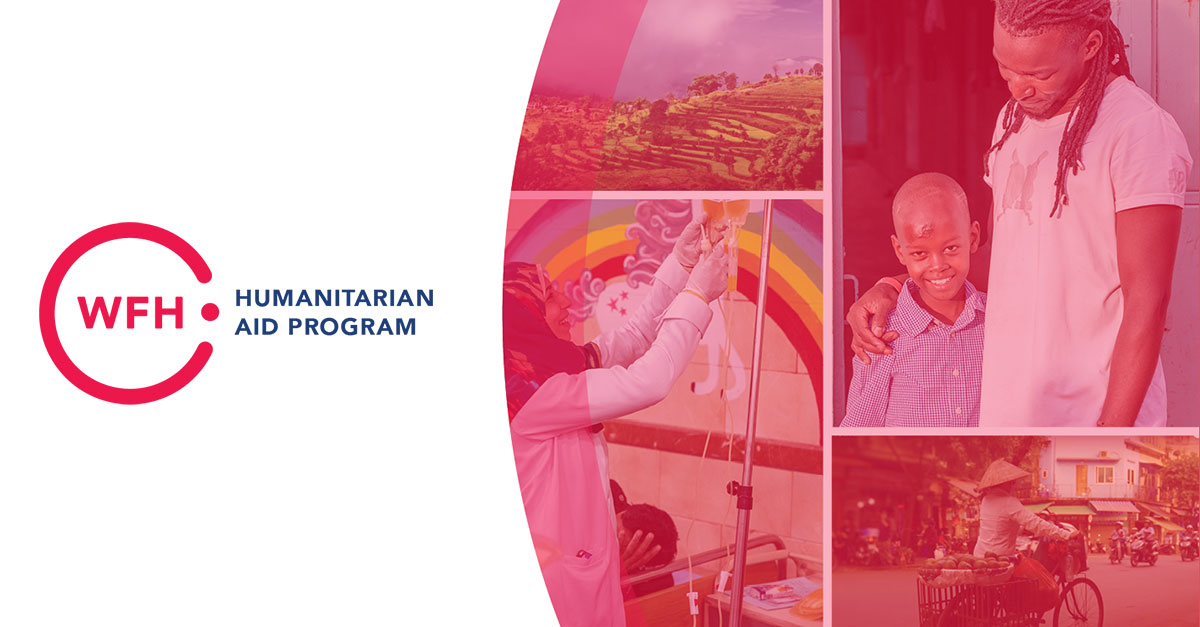The WFH Humanitarian Aid Program team collaborates closely with the WFH national member organization (NMO) in Benin—the Association Béninoise des Hémophiles (ABH)—which was founded in 2015. Thanks to support by the WFH, the level of care in the country has increased. Higher amounts of donated factor have allowed the NMO to begin offering prophylactic treatment to its members—something which would have been unthinkable only a few years ago.
These changes have had a huge impact on the day-to-day lives of PWBDs in Benin. Chimène Vignon, the ABH’s president, recalls the period before WFH Humanitarian Aid Program donations made factor supplies dependable. Patients often faced frequent acute bleeds, sometimes every three months or even monthly. Now that the supply of factor is stable, PWBDs can go up to eight months without an acute bleed. In one situation, donated factor made it possible for physicians to save the limb of a person with a bleeding disorder involved in a serious accident. He recovered within two to three weeks and resumed walking with physiotherapy; without the factor, his limb would have been amputated.
Support with advocacy has also been provided by the WFH. The federation has worked closely with the ABH to help them advocate for better care and support. Through collaborations with healthcare specialists, the WFH and the NMO are appealing to the Beninese government to enhance support for PWBDs in the country. The goal: a future where Benin can be self-sustaining, and be in a position to offer a high level of care to PWBDs so they can live normal, healthy lives.
Since 2015, nearly 2 million IUs of factor, and 86,000 mg of non-factor replacement therapy, have been donated to Benin. Over 350,000 IUs of factor and 23,000 mg of non-factor replacement therapy were donated in 2023 alone. To find out more about the WFH Humanitarian Program, please click here.
About the WFH Humanitarian Aid Program
The WFH Humanitarian Aid Program improves the lack of access to care and treatment by providing much-needed support for people with inherited bleeding disorders in developing countries. By providing patients with a more predictable and sustainable flow of humanitarian aid donations, the WFH Humanitarian Aid Program makes it possible for patients to receive consistent and reliable access to treatment and care. None of this would be possible without the generous support of Sanofi and Sobi, our Founding Visionary Contributors; Bayer, CSL Behring and Roche, our Visionary Contributors; Grifols, our Leadership Contributor; and Takeda and Japan Blood Products Organization, our Contributors. To learn more about the WFH Humanitarian Aid Program, visit www.treatmentforall.org.













